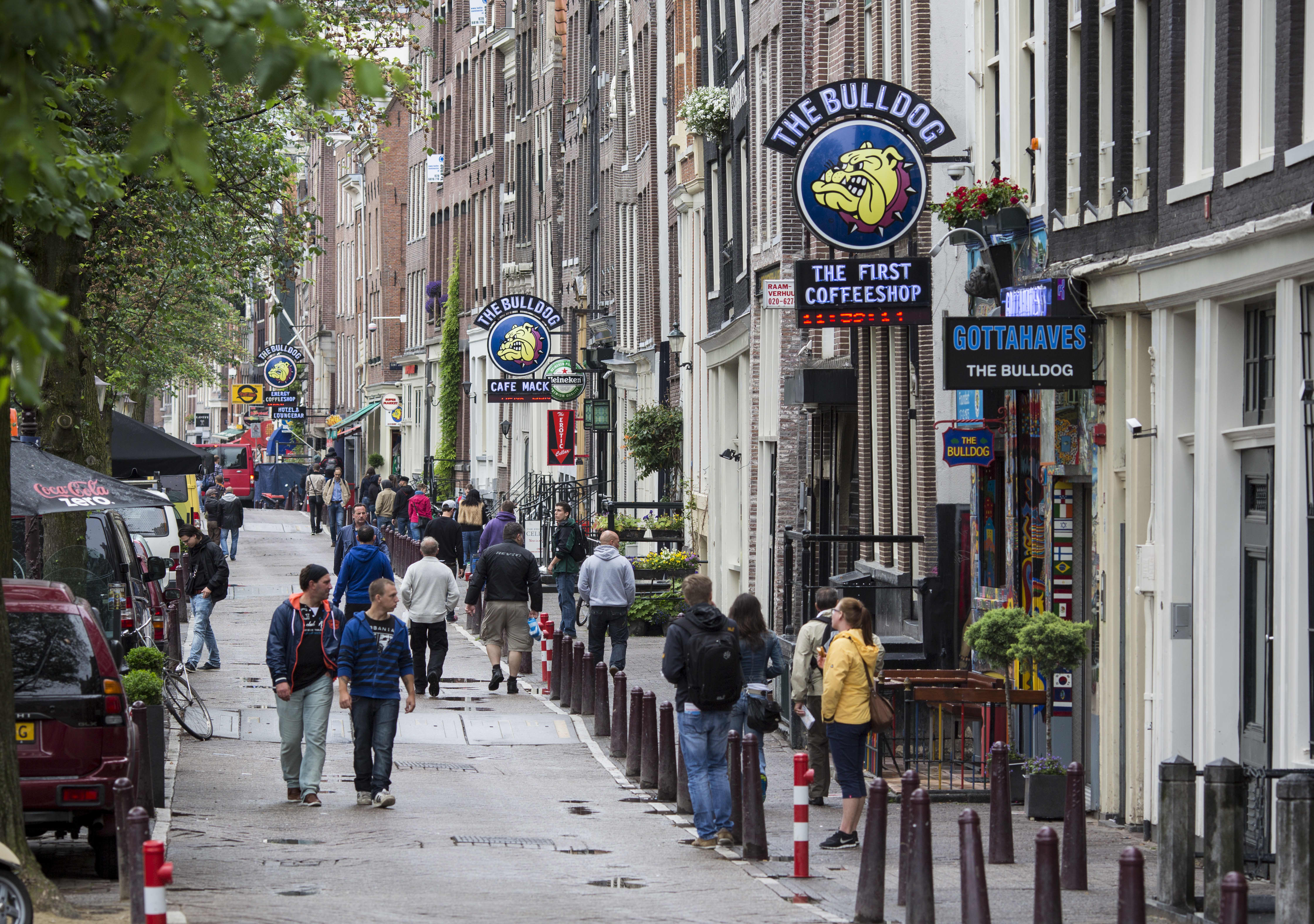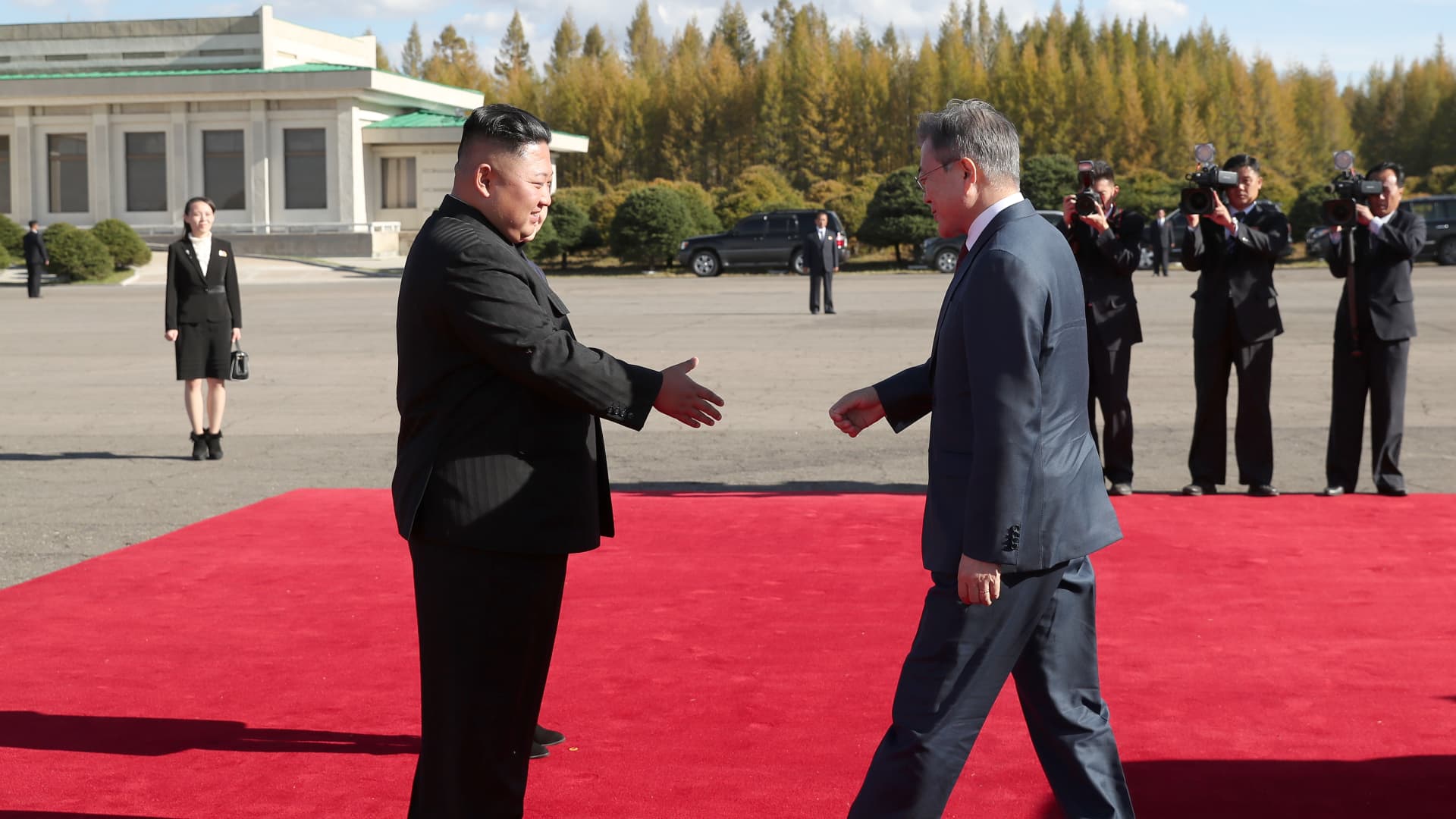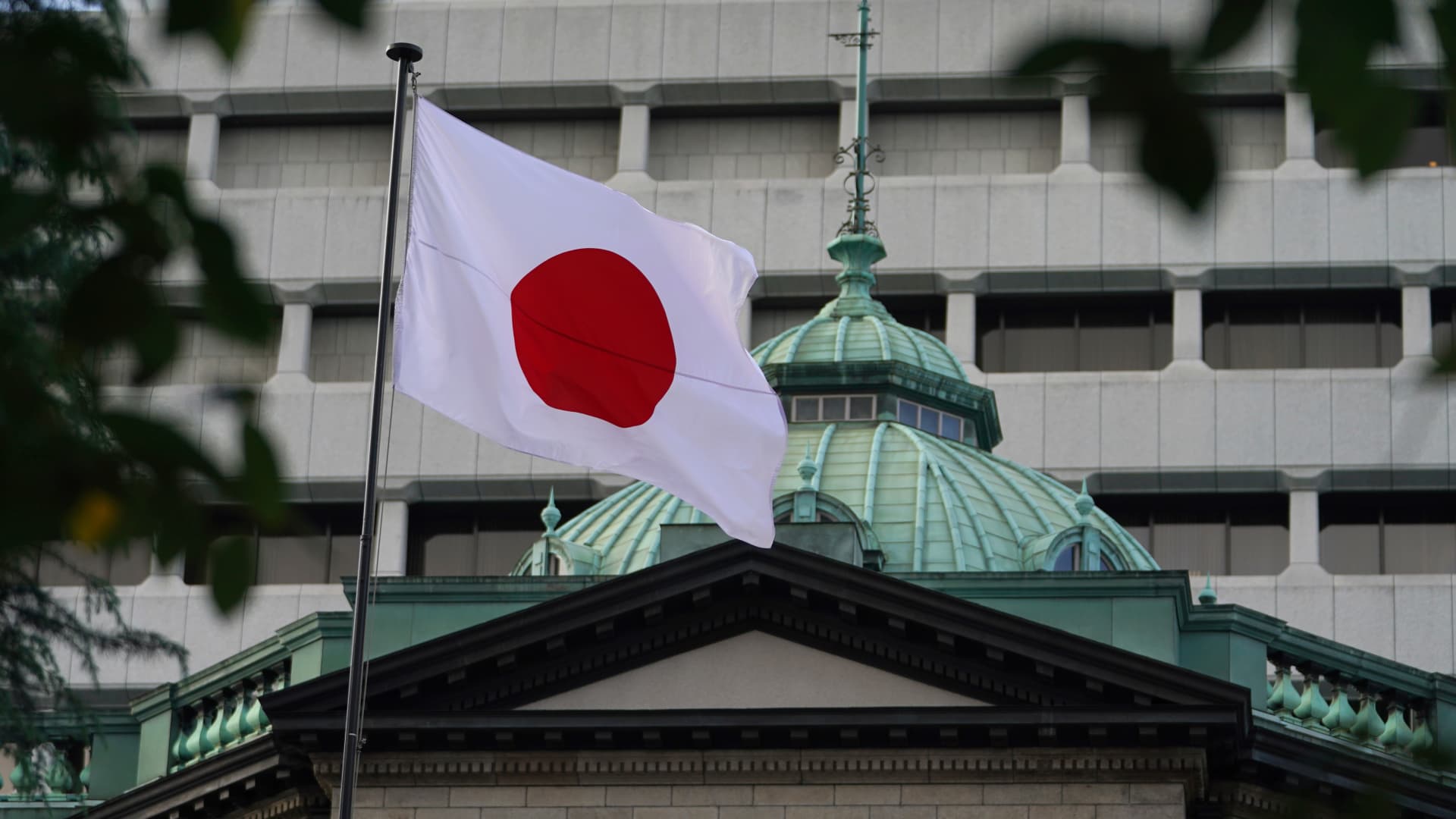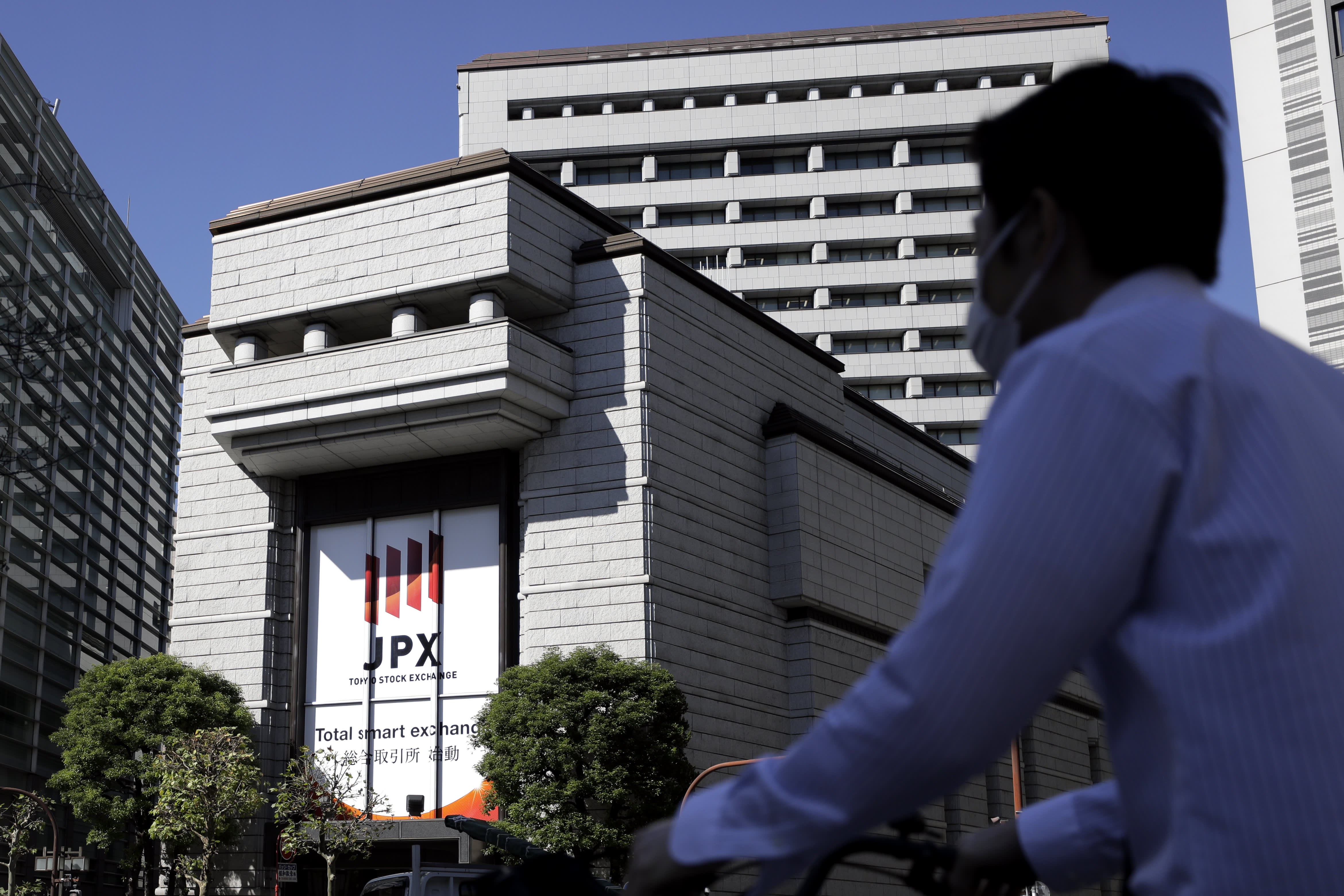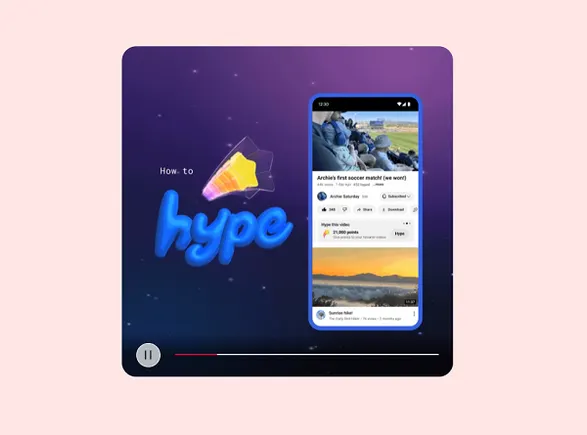Global tech firms are lining up to hire Ukraine's world-renowned coders
Companies around the world are lining up to try to hire coders who have been caught up in Russia's invasion of Ukraine.

Male and female software developers work at their desks in the Luxoft Holding Inc. offices in Kiev, Ukraine, on Tuesday, Oct. 31, 2017.
Bloomberg | Bloomberg | Getty Images
Companies are lining up to try to hire coders who have been caught up in Russia's invasion of Ukraine.
Some 2 million-plus Ukrainian citizens have been displaced in recent weeks, with some of them possessing in-demand technical skills.
Dozens of companies have posted over 500 job ads for tech roles on a website called Remote Ukraine that's been set up to help firms around the world hire Ukrainians. The companies are mostly from Europe but some are also from the likes of U.S. and Canada.
Firms such as Modular Automation and WarDucks in Ireland, Sportradar in Switzerland and Drive System Design in England, are among the tech companies that have shared job ads on the site, with roles on offer ranging from a Web3 developer to a senior 3D artist.
Martin Armstrong, founder of U.K.-based Somerton, a tech platform that aims to partner athletes with coaches, told CNBC that he's made five verbal offers to engineers, content writers and tech sales people. The issue is he can't get visas for them.
"There is no process if you do not have relations here," Armstrong said. "(U.K. Interior Minister) Priti Patel says she is changing it. Here's hoping."
He's made a formal offer to another Ukrainian who is moving to Warsaw to work remotely for him.
Elsewhere, London-based enterprise software firm Cutover has set up a separate "fast-track" engineering role specifically for displaced Ukrainian engineers.
Oscar White, CEO of Beyonk, a venture-backed travel tech platform, told CNBC that he's currently keeping an eye out for job applicants from Ukraine.
"They're meant to be some of the best developers in the world," he said.
A tech powerhouse
A surprisingly large amount of tech that enables our every day lives is built by engineers and software developers in Ukraine.
WhatsApp, Grammarly, Gitlab and Solana were all founded or co-founded by Ukrainians, while Google and Samsung all have research and development centers in the country.
Christian Reber, CEO of presentation app Pitch, told CNBC that he has three engineers based remotely in Ukraine and that the company is doing as much as it can to support them.
"We've offered to cover transportation and accommodation costs for all affected Pitch employees and their families, and given them unlimited time off work, no questions asked," he said.
Like other companies, Pitch has also offered to pay salaries up to three months in advance and provided support in terms of helping to set up bank accounts outside Ukraine.
Denys Zhadanov, a Ukrainian entrepreneur, told CNBC that he has 230 employees in the country.
"The majority are in Odessa, which is safe for now," he said.
Elsewhere, CleverFiles, a U.S. company that aims to help people recover deleted computer files, has more than 20 people working full-time from cities including Kyiv, Kharkiv and Zaporizhzhia.
"At this point, every employee is trying to find a safe place for their family," Alina Mulova, a senior online marketing manager told CNBC on Monday. "Some people have been able to move to western Ukraine, while others cannot leave their cities and are hiding in shelters."
Mulova said CleverFiles' Ukrainian employees are being kept on payroll even though many of them aren't able to work.
Educated citizens
Misha Karpenko, co-founder and senior software engineer at Pitch, told CNBC there are several factors that make Ukraine a great market for highly-qualified tech talent.
"Ukraine has several big technical universities, and a strong culture of encouraging young people to pursue higher education, as I was myself," he said. "Ukrainian society considers technical studies as generally more valuable than humanities."
He added: "More broadly speaking, when the Soviet Union fell apart, many Ukrainians enjoyed newfound freedom and connection with the West but still lived poorly, and couldn't afford to have a PC at home. This led to a surge in interest in computers and software among children and teenagers that grew up in the 90s-2000s, like me."
There are over 10 universities in Kyiv alone and there's a big emphasis on science, technology, engineering and mathematics in the country.
Josh Feldberg, a digital lead at a climate change non-profit in Barcelona, told CNBC that Ukrainians have got a "very good reputation" when it comes to coding.
Feldberg said that all the Ukrainian coders he's worked with have had a comprehensive education with formal training. "They haven't just home-taught themselves," he said.
"A lot of them studied computer science," Feldberg said, adding that many take the time to fully understand Java, one of the most important computing languages.
In terms of who he's worked with, Feldberg said that he's worked with designers, data scientists and front and back end developers from Ukraine.
Obstacles to overcome
Like other countries, the vast majority of tech workers in Ukraine are male. However, men aged 18-60 are not currently allowed to leave the country as the government wants them to stay and fight.
As a result, many Ukrainian software developers are still in the country and working under Russian bombing.
On Monday, Tatyana Perebiynis, who was an accountant for mobile app and game publisher Gismart, was reportedly killed in the city of Irpen near Kyiv with her two children and pet dogs. They were shot down by Russian mortar fire.
Other Ukrainian tech workers have been relocated to neighboring countries by their employers. Israeli social media app Tango has been helping its 90 research and development workers to relocate to Poland, where it has just opened a new office.
Meanwhile, U.K. start-up Localyze has been offering free relocation services to Ukrainian employees.
But Ukrainian coders can't go wherever they wish at the drop of a hat.
Britain, for example, is only letting people in if they have immediate or extended family in the country. The family member must have British nationality, indefinite leave to remain, settled status or proof of permanent residence.
Many Ukrainians who are trying to seek refuge in the U.K. are being held up by bureaucracy or being turned away altogether, according to reports.
About 760 visas have been granted via the Ukraine Family Scheme, one government minister said Wednesday, adding that 22,000 applications are "on their way through."
U.K. Interior Minister Priti Patel said Thursday that the entry process is still being streamlined, adding that the applications are being moved online and that Ukrainians will longer need to physically attend visa centers before entering the U.K. providing they have a passport.

 Fransebas
Fransebas 







